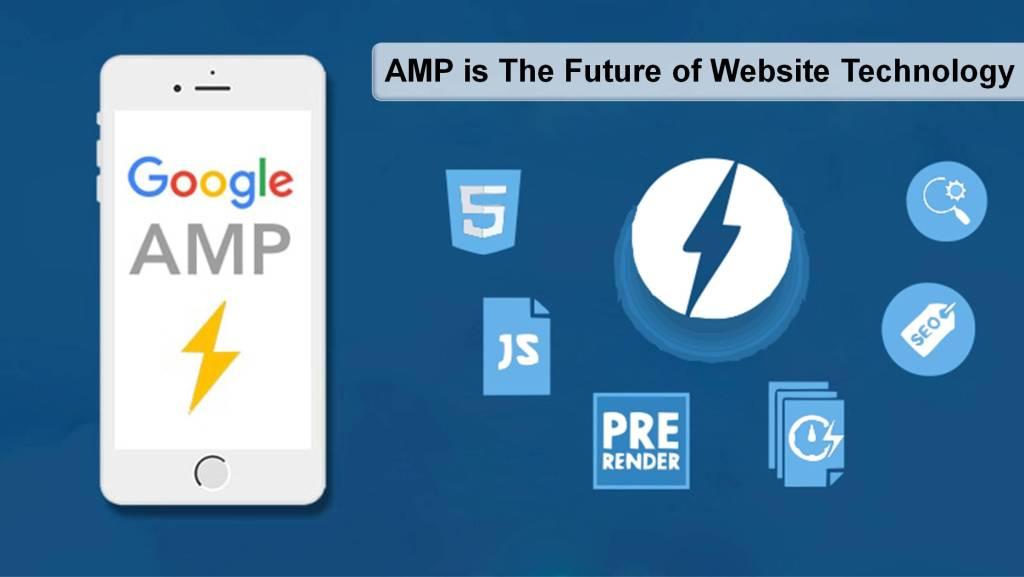AMP is The Future of Website Technology
Popular search engines like Google or Bing always encourages websites which are mobile-friendly. It has been a general idea that a good mobile-friendly responsive website will always be prioritized for higher rankings in search engines. So, it is expected that if your website passes the Google's official mobile-friendly test's, then the rankings will be higher in search results. Unfortunately, this is simply not good enough! That test from google is only a minimum benchmark of higher site rankings. There are numerous factors for higher site rankings, one such factor is Accelerated Mobile Pages (AMP).
Now, 1 st question, what is AMP? AMP stands for Accelerated Mobile Pages and the epithet is literal if we try to explain this characteristic. AMP is an open source web technology which makes the websites compatible smooth, fast and high performing across any devices and platforms. Google launched this future web technology last year hoping to improve the mobile web technology to a significant level.
Now, question is, will this future web technology be a hit or a flop? To answer this question, you need to understand how to prepare an AMP enabled website. First off, you should keep up no less than two variants of any article page: The first form of your article page that clients will regularly observe, and the AMP adaptation of that page. If we skip the technical part of how to convert a regular HTML site to an AMP site, we can elaborate this segment in 3 simple steps:
- You will have to remove any Java-Scripts or 3 rd Party elements.
- All CSS codes must be in-line and should not exceed 50KB.
- Any sorts of media must be optimized as per AMP protocols.
Although there are many technical elements of AMP that you need to configure, these are the basic steps you must follow. Having said so, with the advancement of technology, AMP developers are always trying their best to make such elements compatible. This simple clarification is required to predict the future of AMP.
Now, let us first discuss the positive sides of using AMP in the future:
- Presumably, an AMP website suppose to have more visibility on Google rankings. Knowing the fact that Google has launched this technology it is expected that they will give an extra advantage in SEO.
- AMP serves brilliantly to mobile internet surfing audience. An AMP site loads in less than 7 seconds. This saves a lot of time and the information is to the point helping the audience attracted to such sites more often.
- AMP is a fast and light website technology. So, the size of an Average AMP site is way below in compared to any other platform. Therefore, to take backup of such sites are way easier, faster and hustle-free to the users.
After discussing the pros, it is time to emphasize on the cons of AMP:
- Limitation in website functionalities is a significant drawback of using this future technology. Yes, it loads images and videos but only when you scroll the site. The codes in any AMP sites are restrictive to any dynamic contents that you wish to use in your site.
- No doubt mobile web surfers are growing in number, but that doesn't change the existing audience who believe in conventional web surfing. AMP is dedicated to mobile audience and hence, bypass the idea that this future technology also needs to be desktop-user compatible.
- Since AMP is designed with the purpose of maximum readability and minimum loading time, it is clear that this technology skips the potentiality of high range dynamic contents. This is perfect for blogs and articles but not suitable for any portal-based websites.
Now, after all this discussion, what have we got here? If we overlook the hypothetical SEO effects on a site, AMP is indefinitely limited. Sure, the loading time of a site will improve to a great extent, that doesn't change the fact the limitation to use high range dynamic contents will not be a factor. However, having said so, Google has launched this service. Being a pioneer of the search engine, at least in India, Google understands what future technology would suppose to be. If we trust the idea of Google, AMP's future is indeed Bright!


.jpg)




